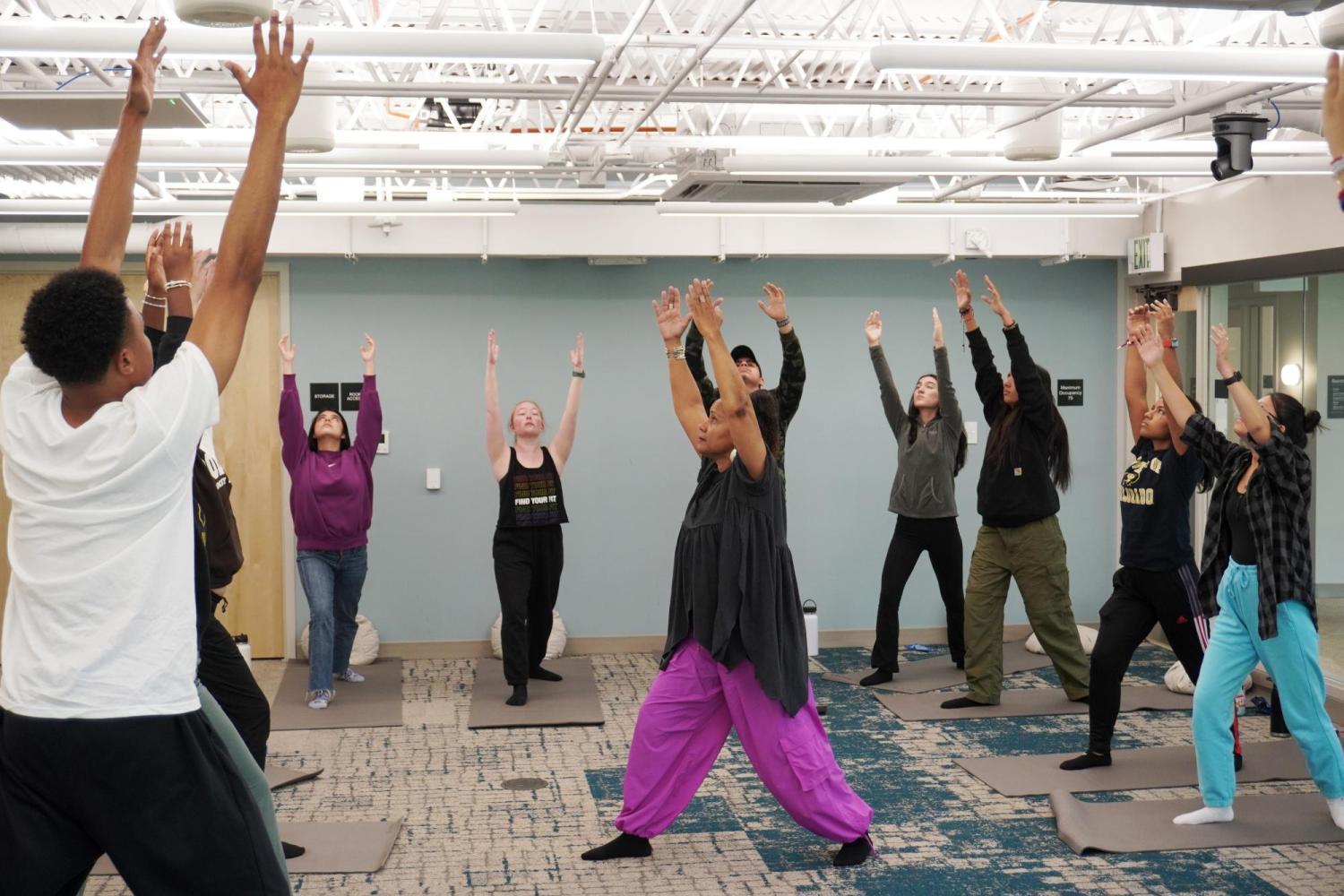Bridging the Gap: Mindfulness for Underrepresented Students

As Minority Mental Health Awareness Month concludes, we spotlight one of the Crown Institute’s Mindful Campus Program courses, focused on providing students with practical tools to manage stress, improve mental health, and foster a sense of community and belonging.
For nearly three years, this 8-week course has been offered every semester to students from the Miramontes Arts and Sciences Program, many of whom are underrepresented in terms of socioeconomic status, race, ethnicity, language, and being first-generation college students.
“We created a curriculum that really introduces various mindfulness concepts and practices to students. Most of the students who come have not had that exposure or experience, and so they want to understand it, they want to know more,” says Michele Simpson, Crown Institute Faculty Affiliate & Research Associate, who leads the course.
The courses are designed to be accessible and inclusive, ensuring that students from diverse backgrounds can benefit from them. For example, mindfulness exercises are often portable, meaning they can be practiced anywhere, whether in a dorm room or while waiting in line. These exercises include breathing techniques to help students calm down before an exam, fall asleep, or cope with bad news.
“You don't have to be in a special place at a special time. And that's really my goal, that students leave with this kit, if you will, of tools and techniques that they can take with them anywhere and that they don't have to purchase,” states Simpson.
Students Return for the Calming Effects
Many students return to these mindfulness sessions, expressing how the practices have helped them cope with personal and academic stress. Students often share these techniques with their families and invite program leaders to introduce mindfulness practices to various campus organizations.
One of the most telling endorsements comes from students who, after completing the 8-week program, choose to return for additional sessions. They often express a need for the calming and grounding effects of mindfulness practices, particularly during stressful times.
“I took mindful meditation last Spring, and it was a great space to express myself and take time for myself. In a lot of cultures there’s a stigma around mental health, this course helped me rethink that and realize that you can’t work from an empty cup,” says Luis Carale, a College of Arts and Sciences sophomore.
Adjusting to Campus Life
At predominantly white institutions (PWIs), minorities often encounter the stark reality of low representation among their peers, faculty, and staff. This lack of representation can be shocking and challenging to adjust to.
Research consistently shows that BIPOC (Black, Indigenous, and people of color) university students experience higher rates of depression, anxiety, and suicidal ideation compared to their peers. This underscores the importance of addressing the mental health needs of students who are often navigating a landscape that feels isolating and unwelcoming.
Despite the availability of mental health resources at academic institutions, there remains a significant stigma around seeking help among BIPOC students. This stigma can be attributed to cultural factors, past experiences, and a general mistrust of mental health services that are not seen as culturally competent. The mental health professionals available often do not reflect the cultural and experiential backgrounds of these students, making it difficult for students to feel understood and supported.
Mindfulness is for Everyone
“Mindfulness is for everyone, if they're interested in embracing it. I find that students, by and large, are very interested in learning about these tools and practices,” adds Simpson.
Minority Mental Health Awareness Month was initiated by Bebe Moore Campbell, a passionate writer and journalist dedicated to mental health issues in communities of color. Although she passed away in 2006, her legacy continues to shine a light on the mental health challenges faced by minorities today.
Initiatives like the Mindful Campus Program play a crucial role in providing mental health resources and practical, accessible tools to support the well-being of all students.

